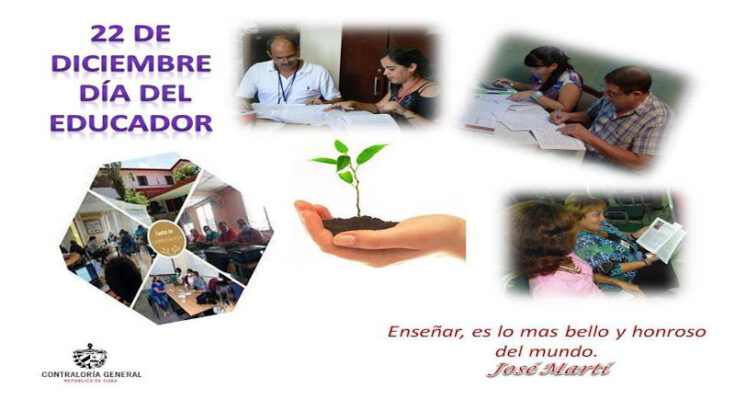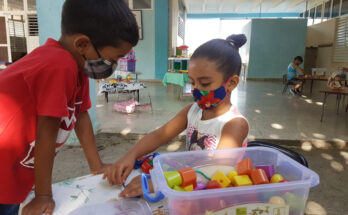December 22 is approaching and there is no better date to evoke educators with gratitude and respect, those men and women who, chalk in hand, guide the young relay between formulas, equations, facts of history, reflections of literary reality, well-worn paths of grammar and daily life.
The images sprout in classrooms and corridors, as proof of a generation committed to pedagogy that from a desk or children’s games, dreamed of educating, of assuming the voice of parents to instruct or train students and see them succeed as invaluable professionals.
Because to educate is not only to shake hands with students, or fill their backpacks with knowledge for the present and the future, it is also to put them on the train of individual and collective dreams with a permanent desire to excel, understood as passion for work, history and the country.
Knowing the disciples and their personal evolution, proposing goals, transmitting optimism, good cheer in difficult moments, joys, advice in the face of doubts, exchanging experiences, is the sacred duty of the teacher during his or her life in front of the teaching profession.
Keeping up to date with almost everything, reading, studying, sharing experiences, establishing family ties, debating current issues with political culture, organizing extracurricular activities and even offering that encouraging embrace is indispensable in this vocation of educating.
Because of all these essential qualities of Cuban pedagogy, which bring a grateful gleam in the eyes of the students, the student-teacher relationship becomes a lasting friendship, and the heart is filled with gratitude and even pride for an army that sows values and feelings, that searches for the good that can be in the soul.
Because putting the body and instruction in the classroom is the teacher’s job to produce in the student love and esteem for knowledge.




